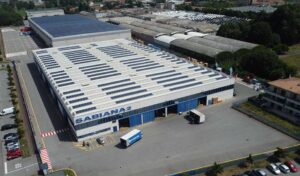RDM celebrates 20 years
8th September 2020
UK: Refrigeration and air conditioning controls manufacturer Resource Data Management (RDM) celebrates its 20th anniversary today.
Founded by current CEO Andrew Chandler on September 8, 2000, the Glasgow-based company has since grown to become one of the world’s leading control and remote monitoring companies.
RDM has pioneered open control systems at the device level, and pushed for genuinely open protocols, including XML and web services. As well as enabling seamless communication and integration with third-party products, RDM’s open protocol products minimise installation cost and removing the need to decommission hardware that could potentially end up as landfill.
At the time the company was formed , the internet was rarely utilised day-to-day as a resource within the industry, and the formation of the term internet of things was years away.
Even though there was no name for it at the time, Andrew could see the potential of systems communicating freely to share data. “Little did I know 20 years ago, that others would share my vision, and that it would become fundamental to day-to-day life.”
The first solution RDM offered was built on this idea: a remote monitoring service for food retailers. Starting with five phone lines, and then migrating to an internet network, the team analysed data from customer sites, identifying areas for improvement in asset maintenance. Based on this experience, RDM developed predictive maintenance systems, enabling the collection of non-critical incident alarms, that could be managed or handled remotely to avoid costly site visits.

Two years later, remote monitoring software ActiveFM was officially launched. Today, it monitors over 8,000 sites worldwide. It has expanded to include energy management features and the options for customers to track.
The company is also proud to have implemented only one price increase since the company was founded. “Instead, we continuously innovated our business operation to control and save costs. This offset inflation and enabled us to maintain our prices without regular annual increases,” said Andrew Chandler.
Sustainability
RDM sees sustainability as key to its operations. It is fundamentally about reducing energy, waste and the carbon footprint, by offering remote monitoring, diagnostics and data to help current and future systems work at their optimal efficiency. But it is an ethos that extends to its own operations.
From its very beginning, RDM invested in technologies to make the head office more energy-efficient. Examples include installing LED lighting, a newly insulated roof, fuel-efficient heating systems, free-cooling for the data centre as well as occupancy detectors.
In 2008 it installed two 15kW wind turbines at its Glasgow headquarters. As a 24-hour operation, the turbines were designed to meet all of the night time and 75% of the daytime demand. In January of this year, RDM announced that all new company cars would be 100% electric.
While all this was going on, the company continued to grow organically, adding offices and partners worldwide. With its headquarters still on Glasgow’s Hillington Industrial Estate, it now boasts direct subsidiaries in the USA, Malaysia, Australia, New Zealand and Sweden, and a worldwide distributor network in Europe, Mexico, South America, and Asia.
Related stories:
RDM establishes New Zealand company – 11 May 2017
UK/NEW ZEALAND: Glasgow-based controls specialist Resource Data Management has established a new affiliate company in Auckland, New Zealand. Read more…
RDM launches Australian partner – 2 March 2015
AUSTRALIA: UK-based RDM has launched RDM Australia to expand the reach of its controls and remote monitoring solutions throughout the country. Read more…
RDM establishes office in Sweden – 13 January 2015
SWEDEN: Control and remote monitoring company Resource Data Management has established a new operation in Sweden. Read more…
RDM acquires Malaysian operation – 22 September 2014
UK: Control and monitoring company Resource Data Management (RDM) has acquired RDM Asia as part of its global growth strategy. Read more…







